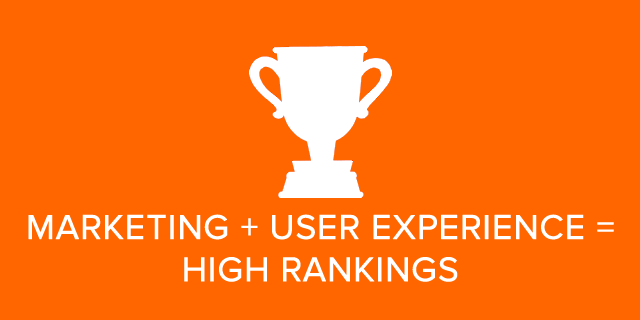Optimization For Search vs. Visitors
Should my site be optimized to rank in search engines, or for visitors and conversions? What’s More Important?
This is a common question that arises for business website owners.

Both sides of the argument have valid points. If you don’t optimize your website for search engines, visitors will not find it so it will not matter anyway. However, no matter how many visitors land on your page, if they don’t like it, they won’t buy.
Your objective in this chapter is to learn what you need to know in terms of optimizing for search engines or visitors.
Optimizing for Search Engines or Visitors
This discussion has been around for years. Designs and content that visitors loved were the very aspects that would make your website virtually impossible to rank. Search engine algorithms were based on the number of times a keyword was used on a page or site. So, websites such as the one below would rank high for car insurance!:

Thank goodness times have changed!
In some of the more recent updates, Google specifically made dramatic changes in the way their algorithm works to help sites that are geared more towards users rank higher in the search engines. Long gone are the days of bad websites using tactics that create terrible user experiences.

We at Orange Fox love to see websites achieving high rankings. However, we believe that user experience and conversions are more important.
When a visitor lands on your page, they will immediately judge your business, determining whether or not they will do business with you. If they can see that you are only focused on your rankings, they will wonder how you will treat them.
Back in the days of phone books, businesses would name themselves with the letter “A” so they would appear higher in the phone book listings. People saw this as a tacky way to gain business, and as a result, possibly chose to work with other businesses. Sure, these businesses probably had more views and possibly more business, but at what cost?
When a website generates quality content, people are more inclined to naturally share it, leading to results in search engines encouraging to business owners.
Important Distinctions
In the past 2-3 years, search engines have provided higher rankings to websites that focus on user experience. Websites that pull tricks to increase those rankings don’t work as well. So, if you’re following advice from several years ago, chances are you’re struggling to rank.
That’s why we’ve compiled a few tips for you.
Tips for SEO
1) Titles & Metas: If you are stuffing extra keywords in these fields, it’s time to quit. Sadly, many “SEO professionals” are actually de-optimizing clients’ websites using these tactics. Do not stuff keywords in your meta description. This should be written specifically to encourage visitors to go to your site when they see it in the search engines. In addition, there is no need to use the meta keyword field. If you would like to add a keyword or two, that is fine, but more than that is unnecessary. For more information about title tags, check out this post.
2) Images: Just like titles & metas, there is no need to stuff extra keywords through your images and their alt tags. Instead, simply describe what is in the image.
3) Inner Linking: Inner linking is linking to other pages on your site from within your content. This improves your rankings if done properly. However, it should be done with discretion. If every time you use a keyword on your site, you link to a specific page, you are lining yourself up for a penalty. Instead, do it only when it adds to the user’s experience and be certain you are using different anchor text in the links. Too many links with the same anchor text will get you penalized eventually (this is one of the ways search engines find black hat SEOs).
4) Using “noindex”: This is a great example of an aspect of your website designed primarily for search engines and will not affect users (in fact, they probably won’t even know). It’s simply a way of telling search engines you are creating a page specifically for users that may or may not be liked by the search engines. Proper use of these tags can help increase your rankings and simultaneously provide users with a great experience. Find out more here.
Final Thoughts
When you are looking to make a change to your site, ask yourself, “Am I making this change primarily to increase rankings or to provide a positive experience for users?” We recommend that you make changes for the benefit of users. As search engines evolve, they will continue to improve their algorithms to incentivize better user experience. In the short term, using tricks may help increase your rankings, but in the long term, it may turn around and bite you!
You’ve met your objective of learning what you need to know in terms of optimizing for search engines or visitors.